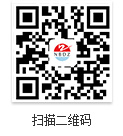The proposal of the two sessions this year is undoubtedly good for all textile people. On April 1st, the value-added tax will be reduced. On May 1st, the social insurance premium rate will be lowered. It will be fully promoted. In 2019, the burden of corporate tax and social security contributions will be reduced by nearly 20,000. 100 million yuan, in the value-added tax, the current 16% tax rate in the textile manufacturing industry is reduced to 13%! Tax reduction and reduction will directly affect the pattern of our textile industry and reduce the burden on traditional enterprises!
Change 1: The price of raw materials has fallen
As early as May 2018, the government had lowered the VAT rate. At that time, the VAT rate was reduced from 17% to 16%. However, the 1% reduction did not splash the waves in the market. The tax rate of % fell to 13%, and the market feedback after the policy landing will be more obvious.
Change 2: stimulate downstream consumption
The value-added tax is an extra-price tax. The enterprise does not enter the cost. The actual profit of the industry after the VAT tax reduction is derived from the cost control and bargaining power of the upstream and downstream industry chains.
When the value-added tax is lowered, the overall tax burden of the textile industry will fall by 0.9%, which will undoubtedly stimulate the market and mobilize the enthusiasm of consumers. Enterprises pay less taxes and consumers pay less. This is also the case for textile and apparel industries with a high degree of competition. To the direct benefit.
Change 3: Overall burden reduction for textile companies
Today's textile companies are becoming very thin under the pressure of rising labor costs, environmental protection investment, utilities, and factory rents. The tax burden is a lot of expenses, and after the VAT adjustment, according to The annual turnover of large textile enterprises, tax reduction and tax reduction policies can save enterprises 30 million yuan!
At the same time, the effect of tax reduction will be accelerated, which will help textile enterprises to “l(fā)ightly install” and give more profits to enterprises. The two associations also proposed to reduce the burden of corporate social security contributions, and also stabilize and expand the scale of employment, to solve the current textile and garment industry to a certain extent. The labor shortage is difficult to recruit.
Ningbo Volkswagen Chemical Fiber Industry Co., Ltd. is now a national medium-sized enterprise, a large industrial enterprise in Zhejiang Province, with long-term production and operation: polypropylene filament, polypropylene yarn, PP FDY yarn, polyester staple fiber, polypropylene full drawn yarn, PP POY yarn.


 Mr. Chen Fei (Mr.)
Mr. Chen Fei (Mr.) 86-574-63550733
86-574-63550733 86-574-63551022
86-574-63551022 dz@dzfibre.cn
dz@dzfibre.cn



